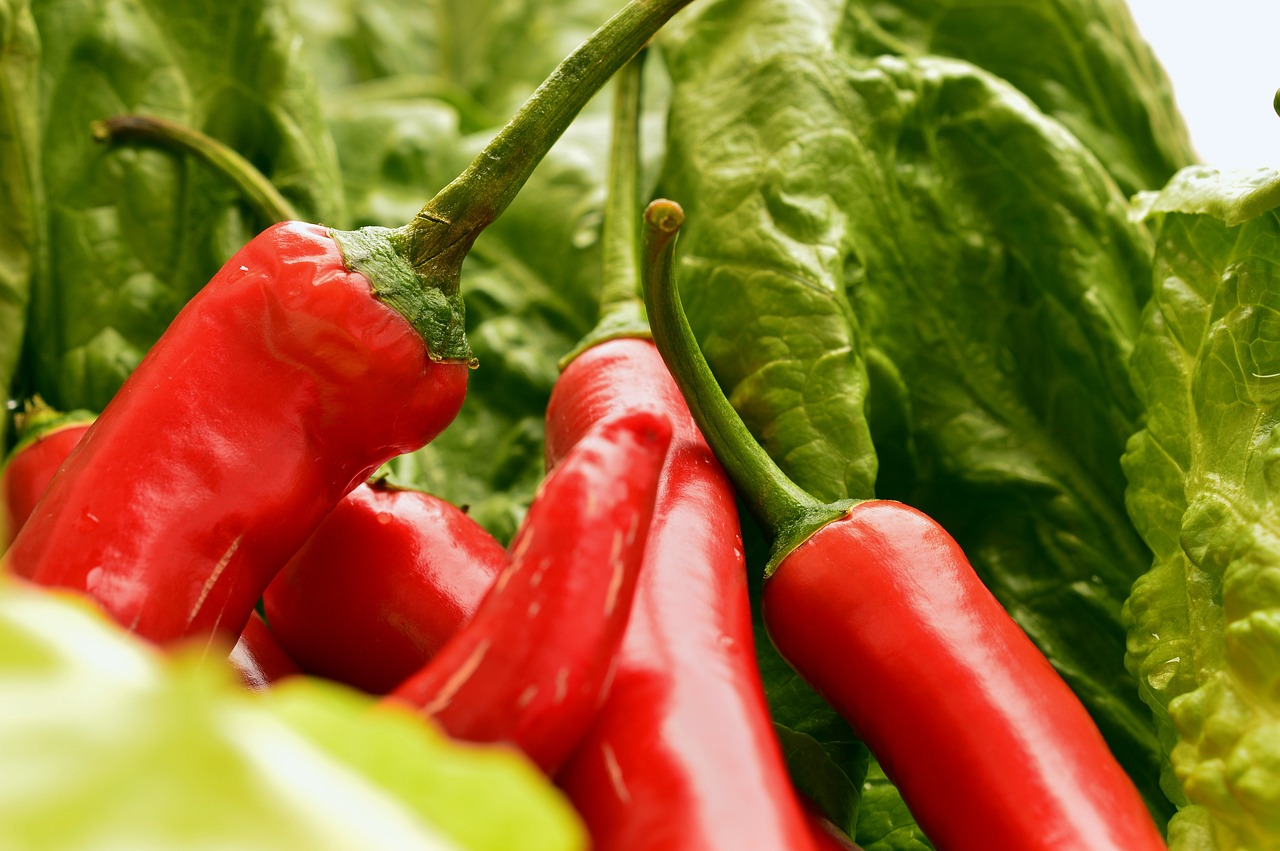
Growing sweet and chilli peppers can be a rewarding experience, but it can also be challenging. One way to increase your chances of a successful harvest is by planting companion plants. Companion plants are plants that are grown alongside your main crop to help improve growth, deter pests, and increase yields. In this article, we will explore 17 companion plants that can help boost your sweet and chili pepper harvest.
This post may have affiliate links. This means that sometimes when you click a link on our site and make a purchase on Amazon, we may earn a small commission at no additional cost to you. We only recommend products we truly believe in, and your support helps keep us running!
Choosing Companion Plants for Your Chilli Pepper Patch
Selecting the right companion plants can significantly enhance your pepper harvest. Here are some key factors to consider:
- Sunlight Needs: Peppers thrive in full sun, so avoid companions that cast too much shade. Taller plants like corn should be placed strategically on the north side of your peppers to provide afternoon shade without blocking morning sun.
- Mature Size: Consider how big each plant will get at maturity. Low-growing herbs like oregano and chives won’t compete with peppers for sunlight, while larger companions like sunflowers need to be planted further away to prevent crowding.
- Planting Distance: For most herbs, a spacing of 6-8 inches around the base of pepper plants is sufficient. Bush beans and peas can be planted closer, around 4-6 inches away. Taller companions like corn should be planted at least 18 inches from peppers.
Tools You May Need For Companion Planting:
- Gardening gloves to protect your hands while planting.
- Hand trowel for digging holes for transplants and mixing soil amendments.
- Garden rake for leveling soil and smoothing planting beds.
- Seed spreader (optional): A handheld seed spreader can be helpful for sowing small seeds like those of carrots or herbs.
- Watering can or hose for watering your plants.
17 Companion Plants For Sweet And Chilli Pepper
Spice Up the Defenses
- Basil: This aromatic herb isn’t just for pesto! The strong scent confuses and repels harmful insects like aphids and whiteflies, while simultaneously attracting beneficial pollinators like bees and butterflies.
- Marigolds: These vibrant beauties don’t just add a pop of color; their pungent marigold flowers emit a natural insecticide that deters pesky thrips and tomato hornworms. Plus, their shallow root systems won’t compete with your peppers for vital nutrients.
- Chives: These culinary wonders pack a double punch. Their delicate flowers attract hoverflies, natural predators of aphids, while their allium scent repels unwanted visitors like beetles and spider mites. Bonus points for adding a subtle garlicky flavor to your dishes!
- Nasturtiums: These cheerful climbers act as a living trap, luring harmful aphids away from your peppers while offering themselves as a tasty alternative meal. Their vibrant blooms also attract helpful pollinators, creating a win-win situation.
Nature’s Nitrogen Fixers
- Beans: These legume powerhouses fix nitrogen in the soil, making it readily available for your peppers, leading to lusher growth and increased yields. Choose bush beans for space-saving efficiency.
- Peas: Another nitrogen-fixing friend, peas provide a similar benefit to beans while adding vertical interest to your garden. Opt for early-maturing varieties to avoid shading your peppers later in the season.
- Clover: This low-growing groundcover acts as a living mulch, suppressing weeds and retaining moisture while naturally fixing nitrogen in the soil. Bonus points for attracting pollinators and adding a touch of green magic to your pepper patch.
Living Mulch & Pollinator Magnets
- Borage: This self-seeding wildflower attracts a myriad of beneficial insects, including bees, butterflies, and hoverflies, ensuring excellent pollination for your peppers. Plus, its edible blue flowers add a delightful touch to salads.
- Mint: While its invasive tendencies demand vigilance, strategically planted mint can act as a living mulch around your pepper plants, suppressing weeds and adding a refreshing fragrance. Just remember to keep its growth in check!
- Dill: This feathery herb attracts beneficial insects like hoverflies and parasitic wasps, while its fragrant foliage deters some harmful pests. Plus, its seeds and leaves add a unique flavor to various dishes.
Beneficial Shade & Nutrient Suppliers
- Sunflowers: These towering beauties provide dappled shade for your peppers during the hottest part of the day, protecting them from sunscald. Additionally, their deep roots help loosen compacted soil, improving drainage and aeration.
- Corn: Similar to sunflowers, corn offers partial shade and attracts beneficial insects like ladybugs, natural predators of aphids and other pests. Just be mindful of spacing to avoid competition for resources.
- Tomatoes: Though technically the same family, peppers and tomatoes can surprisingly coexist happily. Their shared needs for sun, water, and nutrients make them good neighbors. Just ensure proper spacing and monitor for any signs of disease.
Flavorful Additions & Ecosystem Boosters
- Oregano: This aromatic herb not only adds a delicious touch to pizza and pasta, but its strong scent also repels harmful insects like whiteflies and mosquitoes. Plant it near the edges of your pepper patch for maximum pest deterrence.
- Catnip: Yes, even this feline favorite has a place in your garden! While it attracts cats, its strong scent also repels aphids and other flying pests, making it a valuable companion for your peppers. Just remember to manage the catnip population if necessary!
- Chamomile: This calming herb attracts hoverflies and parasitic wasps, natural enemies of common garden pests. Additionally, its delicate white flowers add a charming touch to your pepper patch.
- Garlic: This pungent powerhouse repels a wide range of pests, including aphids, thrips, and even some rodents. Plant it alongside your peppers or interweave it throughout your garden for broad-spectrum protection.
